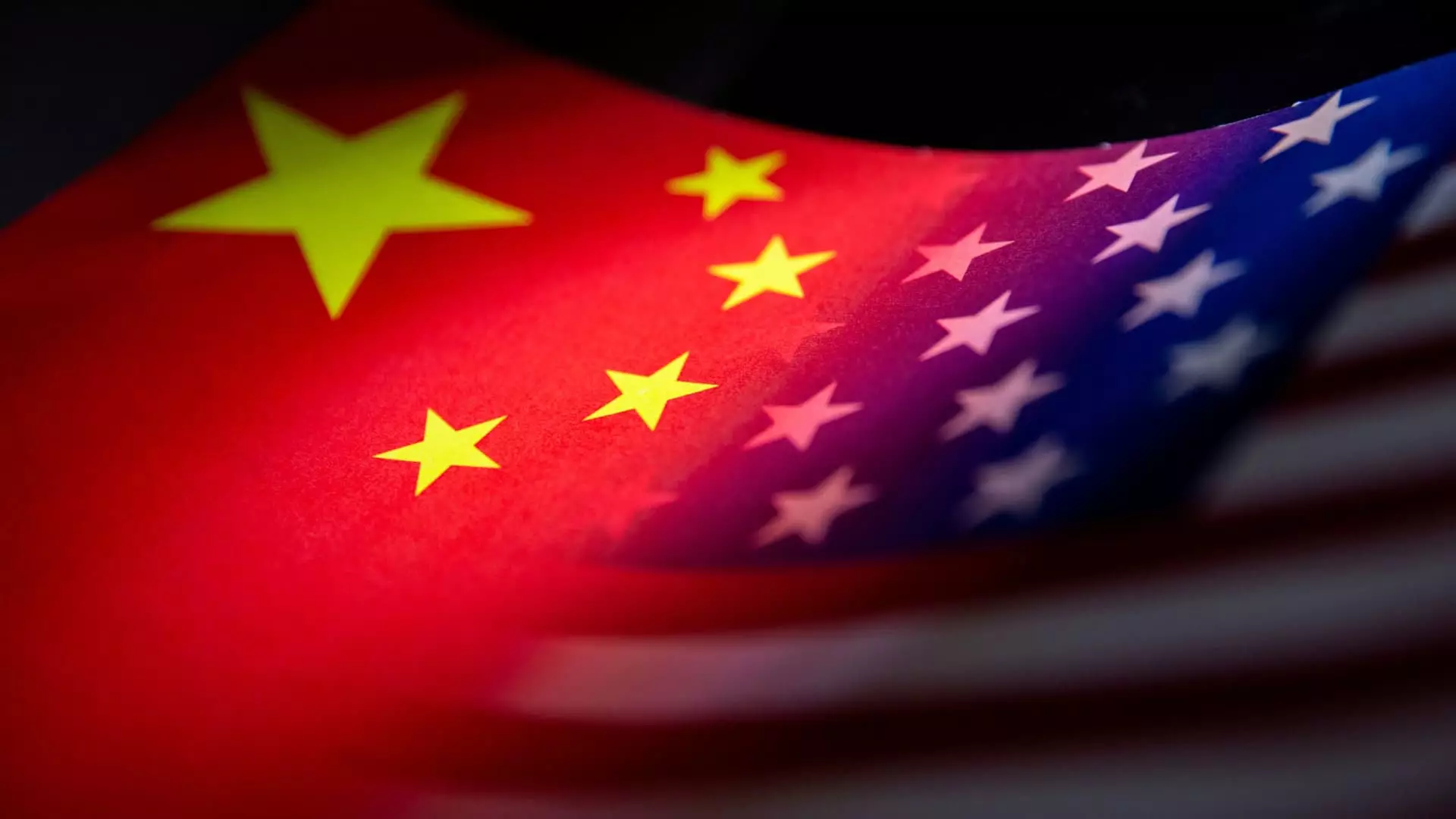In recent months, Chinese President Xi Jinping has made aggressive overtures to global executives, attempting to present China as a bastion of stability and opportunity amidst rising trade tensions. At a recent roundtable, Xi proclaimed that “to invest in China is to invest in tomorrow,” appealing to the multinational community to recognize the supposed benefits of engaging with a rapidly evolving Chinese market. However, beneath this veneer of optimism lies a complex reality that warrants critical scrutiny.
China’s increasing hostility towards equitable trade practices cannot be understated. While Xi emphasizes the importance of collaboration to “uphold global order,” it’s essential to question whether this sentiment reflects a genuine desire for mutually beneficial relationships or simply a tactic to mitigate international backlash. Multinational companies must recognize that incursions into the Chinese market come with inherent risks—risks that extend beyond mere tariffs and regulatory hurdles.
Diplomatic Dissonance: The Price of Alliance
As Xi invites foreign businesses to invest in China, the geopolitical landscape is anything but favorable. President Donald Trump has, in a show of bravado, raised tariffs by 20% on imports from the nation, condemning China’s role in various crises while simultaneously dangling the prospect of easing these pressures for specific concessions. This dichotomy creates an unsettling uncertainty for businesses that rely heavily on the U.S.-China trade relationship. The ambiguity surrounding trade agreements leaves executives in a precarious position, caught between the allure of China’s vast consumer base and the volatility defined by U.S. policy.
Moreover, the indiscriminate targeting of Chinese tech firms by the U.S. government highlights a growing trend of “decoupling” between China and America. This schism threatens to fracture well-established supply chains, pushing corporations to consider alternatives that do not compromise their operational stability. One cannot help but wonder if Xi’s invitations are, in fact, a calculated move designed to portray the Chinese market as exclusive, leaving foreign businesses with the choice of dancing to Beijing’s tune or opting out entirely.
Fairness or Facade? The Illusion of Opportunity
Xi’s assurance that China will provide fair opportunities for foreign companies to participate in government procurement bids feels like a hollow promise in light of the nation’s historical practices of favoritism towards domestic enterprises. The competitive playing field is tilted, often favoring state-owned enterprises that operate under the influence of the government. Evidence of espionage and intellectual property theft further exacerbates the skepticism surrounding the fairness of these opportunities.
Calls for “global supply chain stability,” as put forth by Xi, echo hollow in an environment rife with unpredictability. To suggest that multinational businesses should engage with such a system is to ignore the multitude of challenges that arise from engaging with an economy that has not only expansive ambitions but also an unstable operational framework. Corporations should, therefore, weigh the potential returns against the risks of becoming unwitting captives of a state-driven economy.
Strategic Moves amidst Economic Realities
Despite ongoing tensions, China continues to seek alliances, courting foreign executives as if to demonstrate its commitment to globalization. An absence from venues like the recent international conference—most notably that of tech leaders like Elon Musk—could symbolize reluctance or refusal to engage in a marketplace that lacks clear rules. Executives like Ray Dalio may find themselves caught in a sophisticated game of international chess, where China’s endgame remains uncertain and executives become collateral damage in larger geopolitical conflicts.
Xi’s overtures to engage with U.S. business leaders may appear conciliatory, but they aimed to reinforce a narrative of stability that is increasingly challenged by global realities. The U.S.’s trade blacklist of Chinese companies not only impacts bilateral trade but also pulsates through international markets, complicating investment decisions with serious ramifications. A cooperative spirit, as suggested by members of the Chinese leadership during these gatherings, is overshadowed by the reality that no one gains from a trade war—instead, it often leads to devastating consequences for both economies.
While Xi’s rhetoric may sound appealing, it is paramount for multinational corporations to approach investments in China with caution. The complex interplay of strategic interests, market volatility, and competitive disadvantages makes it evident that opportunities in China come at a significant cost. Thus, the allure of Xi’s invitation to invest must be tempered by the pragmatism of corporate risk assessment.

